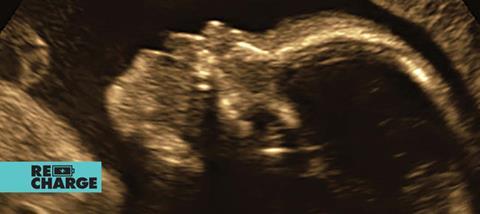
There is a story told of Mahatma Gandhi meeting King George V of England for the first time. Gandhi had spent much of his adult life resisting British rule in India, so his trip to London in 1931 was significant. He visited Ten Downing Street before being taken to Buckingham Palace to be presented to his majesty.
The King, as might be expected, was decked out in all the formality and finery of his office. Gandhi, by contrast, wore only his habitual loin-cloth and shawl - he was dressed no differently than he would be for a walk through the poorest district of Calcutta. After the meeting a journalist asked the exotic visitor if he had been embarrassed, so under-dressed in the presence of the King. ‘Not at all’, Gandhi replied with a smile, ‘His majesty was wearing quite enough for both of us.’
Born again, when?
We don’t know very much about Nicodemus, but we do know that he enjoyed a high social status. He was wealthy, powerful and welleducated. He held a position of respect in the religious and political establishment of his day. We also know that he was conscious enough of his rank to require a secret, nighttime meeting in order to speak to Jesus. This is a man who wore his status like a uniform: an instantly recognisable minor celebrity. Jesus, by contrast, was poor and had little formal education. At this stage in his public ministry he was almost certainly homeless, relying on the charity of friends like Lazarus and Joanna, whose husband worked in the household of King Herod. Nicodemus the professor meets with Jesus the couch-surfer, and guess who turns out to be cleverer?
All of us need God to make us small again
The conversation centres on two linked themes: new birth and the ministry of the Holy Spirit. This is the passage that has given us the phrase ‘born again’ and spawned a whole movement of 20th Century evangelists. It is highly unlikely, of course, that the ‘born again’ concept Jesus introduces to Nicodemus has anything at all to do with being ‘born again’ in the way our TV evangelists suggest. For a start, there were no evangelicals in Jesus day and the concept of conversion as we know it simply didn’t exist. Using ‘born-again Christian’ as a label for a particular way of pursuing the faith may have some sociological usefulness, but it bears no relation whatsoever to this passage. What then is Jesus talking about? Like Gandhi before King George, he is talking about the sheer weight of the clothing Nicodemus has allowed his faith to be buried under. His religion, his education, his prosperity, his social standing - all these have become fashion accessories, badges and medals to be worn for all the world to see. Jesus is interested in what’s underneath. Who is Nicodemus without all these things? Stripped of his sophistication and cleverness, who might this old man really turn out to be? To truly experience the presence of God, Jesus says, we must come to him as a newborn baby - naked, uneducated, carrying neither wealth nor status. We must set aside the tools and tricks we have spent so long acquiring, and simply let God love us as we are.
We must come to God as a newborn baby - naked, uneducated, carrying neither wealth nor status
Born again, then
What Jesus says to Nicodemus is a challenge born of the most perfect compassion. Jesus is not angry with Nicodemus for having gathered all his props; on the contrary, he feels such a love for the old man that he longs for him to be free of these entrapments and to experience, as Foy Vance recommends, the joy of nothing. This conversation illustrates the most stirring aspect of Jesus’ encounters with different individuals. He is never swayed by their status - low or high - and always responds with compassion. As capable of sipping champagne with the rich as of sifting garbage with the poor, Jesus sees each person for who they are, beneath the masks of both power and poverty, and finds a way to move them further and deeper in their journey into love.
The idea of being ‘born again’, as Jesus suggests it here, is strongly linked to the ministry of the Holy Spirit. Nicodemus, a student of Israel’s history, knows that as a nation they have been the beneficiaries of the Spirit’s power. The wind that ‘blows where it wants to’ once blew over the chaos of an unformed sea to shape their paradise, and blew again against a sea’s high waves to bring them out of slavery and into God’s promise. Nicodemus knows what it is for the Spirit to be at work, but what has he done, what has Israel done, with this raw blessing? They have wrapped it up in the ritual and workings of religion, they have smothered it in social convention and judgementalism. The Spirit longs again to fill their sails, but their sails are tightly lashed to the masts of their religion, to structures so unbending it will take a hurricane to shift them. Nicodemus, for his part, is heavily invested in these structures. His whole identity comes from them. Will he be the one, fond as he is of Jesus, to break the mould? Will he have the courage to loosen the locks of the temple and seek again the wild winds of the Spirit?
The third key aspect of this conversation is its most intriguing. In urging Nicodemus to be born again, Jesus is describing a journey he himself has taken. ‘How can a man re-enter the womb?’ Nicodemus asks, unaware that he is asking the only man alive who has actually done so. Only Jesus, from a position of maturity and power, has made the choice to re-inhabit infancy and experience birth again. He is not asking his friend to do anything he has not himself done. Philippians 2:5-11, the earliest creed of the Christian community, describes the journey, as Jesus sets aside prestige and power to enter the world poor and naked. This, Paul tells us, is the attitude that we should have. We too are called to give up adult securities and trust God as helpless infants. This is the birth canal we are being asked to move through, to follow Jesus in kenosis, the chosen path of radical self-emptying.
Born again, again
How can we respond, so many generations after Nicodemus, to this challenge? The answer is self-evident: we can be born again. All of us, even those as established in the faith as Nicodemus was in his, need God to make us small again. Even those of us who use the label ‘born-again’ - perhaps especially those who use such labels - need to be born again. We need to set aside the very clothing of power and prestige, of status and selfsatisfaction and come to faith, and to the love of God, in our birthday suits. We need to be ruthless in seeing where our religion has become the very prison that prevents us from embracing God’s ferocious mercy. We need to loosen the ropes of our rituals and practices and seek again the wild winds of the Spirit.
Only as we do these things will we discover the inestimable joy that Jesus had in mind for Nicodemus. It is the joy of owning nothing, of bringing nothing to the party. The joy of being stripped of all the things we thought were so important and discovering, without them, that we are loved. It is the joy of being held as new-borns in the arms of our father, as he beams with pride and giggles over us the words, ‘Welcome to my world…’
TAKE AWAY Two easily digestible tweet-sized bites
THOUGHT: It’s all too easy to see Nicodemus as someone who needs to be born again so that he can be like us. But what if he is very much like us already? What if we, too, are so religious that we need to be reborn?
PRAYER: Where I have let religion weigh me down with weariness, Where my rituals rein in your raging love, Where faith has frozen. Where my heart is hard. God let me be born again, again.
(@twitturgies)






































